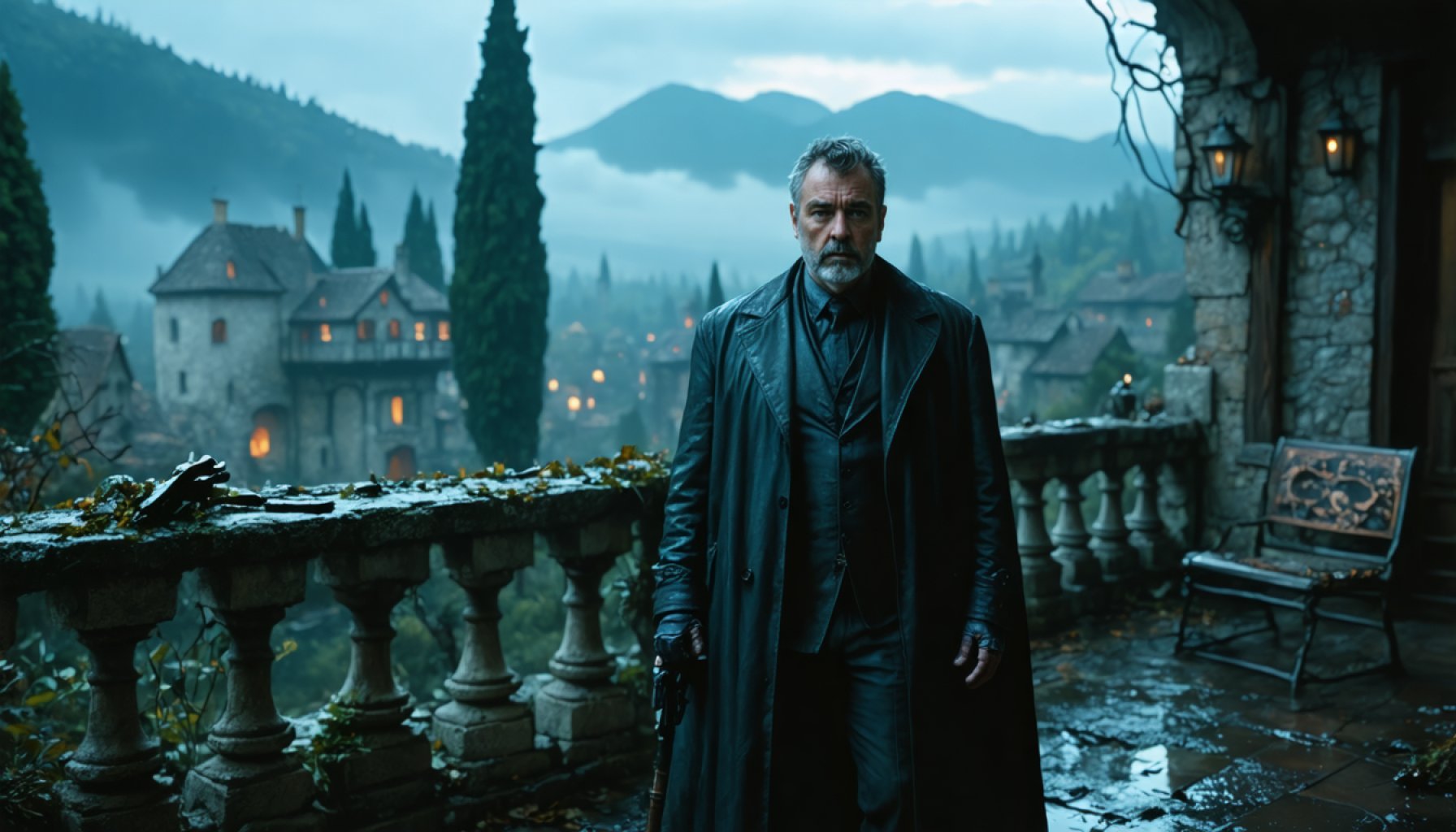- A peaceful morning in Normandy was shattered by hunters invading Luc Besson’s family property.
- An exhausted stag, seeking refuge, was surrounded by hunting dogs mere feet from the Besson family home.
- The elderly matriarch attempted to intervene but was met with the hunters’ disregard.
- Luc Besson condemned the hunters, labeling them as butchers without honor or respect for life.
- The brutal incident was captured on video, with authorities launching an investigation into the illegal hunt.
- This event spotlights the ongoing conflict between wildlife conservation and traditional hunting practices.
- Besson advocates for justice and the preservation of sanctuaries, calling for respect and harmony.
A serene morning on the terrace of Luc Besson’s family home in Normandy quickly unfurled into a nightmare. With a savage intrusion, hunters infiltrated the private property and unleashed chaos. An exhausted stag, seeking refuge mere feet from the door, found itself surrounded by a pack of eager dogs. The elderly matriarch, startled by the pandemonium, desperately pleaded with the trespassers to leave. Her voice, filled with urgency and disbelief, succumbed to the hunters’ indifference.
As the scene descended into brutality, her trembling hands documented the appalling act. Searing blades flashed under the waning sun while the cacophony of barking dogs and the desperate cries of the stag pierced the tranquility. What should have been a sanctuary became a stage for barbarity.
Luc Besson, ignited by fury, expressed outrage over this grotesque display. He condemned their actions as monstrous, branding them as butchers, devoid of honor or respect for life and the law. The filmmaker, compelled by a mix of anger and helplessness, vowed to hold the perpetrators accountable.
Authorities have opened a preliminary investigation into this brazen violation, highlighting the severity of the unlawful hunt. The dark shadow cast on this once-peaceful haven underscores a broader conflict between conservation and tradition.
Besson, a reluctant but determined steward of wildlife, faces a bitter reality—preserving a sanctuary amidst a contentious hunting culture. His poignant words echo a plea for respect and harmony, a call for justice amidst tumult.
Shocking Invasion: Hunters Violate Private Sanctuary in Normandy
Analyzing the Intrusion: Understanding the Conflicts and Legal Implications
The alarming incident at Luc Besson’s family home in Normandy sheds light on the polarizing debate between traditional hunting practices and contemporary conservation efforts. This report unravels potential areas of concern while offering guidance and clarity to those navigating similar challenges.
Understanding Hunting Laws in France
In France, regulations surrounding hunting are strict, especially concerning private property. Unauthorized hunting not only infringes on privacy rights but also violates wildlife conservation laws. According to French law, hunting on private land requires explicit permission from the landowner. Violating these laws can lead to significant legal consequences, including fines and imprisonment.
Pressing Questions:
– What are the legal repercussions for unauthorized hunting on private land in France?
Trespassers can face criminal charges, monetary penalties up to €45,000, or a year in prison.
– How can property owners protect themselves?
Landowners should post signs marking private property, invest in surveillance, and engage with local authorities for rapid response protocols.
Real-World Use Cases: Balancing Conservation and Traditional Practices
The incident illuminates the broader conflict between conservation goals and age-old hunting customs.
Conservation vs. Tradition:
– Conservation Efforts: Current trends emphasize biodiversity, habitat preservation, and ethical wildlife interaction. Organizations like the World Wildlife Fund (WWF) champion these initiatives.
– Traditional Practices: Hunting remains a culturally significant activity in many regions, advocating for its role in managing wildlife populations and sustainability.
Where the Balance Lies:
– Community Engagement: Initiatives such as community forums can harmonize conservationists’ and hunters’ efforts, promoting mutual understanding.
– Education: Programs addressing ecological impact and sustainable practices can guide hunters toward more responsible behaviors.
Pros & Cons: A Closer Look at Hunting and Property Rights
Pros of Regulated Hunting:
– Population Control: Helps in managing species overpopulation.
– Economic Benefits: Hunting tourism generates revenue.
Cons:
– Ethical Concerns: Raises moral questions regarding the treatment of wildlife.
– Potential for Abuse: Cases like the Normandy incident reflect the potential for illegal and unethical behavior.
Security & Sustainability: Ensuring Sanctuary Safety
Key Security Measures:
– Surveillance Systems: Install cameras to document unauthorized activity.
– Legal Preparedness: Keep contact with legal counsel for immediate assistance.
Sustainability Tips:
– Engage in workshops focused on property rights and wildlife protection.
– Foster alliances with environmental organizations to bolster property defenses.
Conclusions: Actionable Recommendations
To safeguard private sanctuaries and promote harmonious interactions between humans and wildlife, consider these strategies:
1. Strengthen Legal Awareness: Familiarize yourself with local hunting laws and property rights.
2. Enhance Physical Security: Invest in technology and infrastructure changes to deter unauthorized access.
3. Build Community Alliances: Collaborate with conservationists and local stakeholders for a unified approach to wildlife management.
For further insights into managing private conservation efforts and understanding broader regulatory implications, explore resources like IUCN and WWF.
This incident is a poignant reminder of the continual need for vigilance, education, and community collaboration in preserving our sanctuaries and respecting living organisms’ rights.
